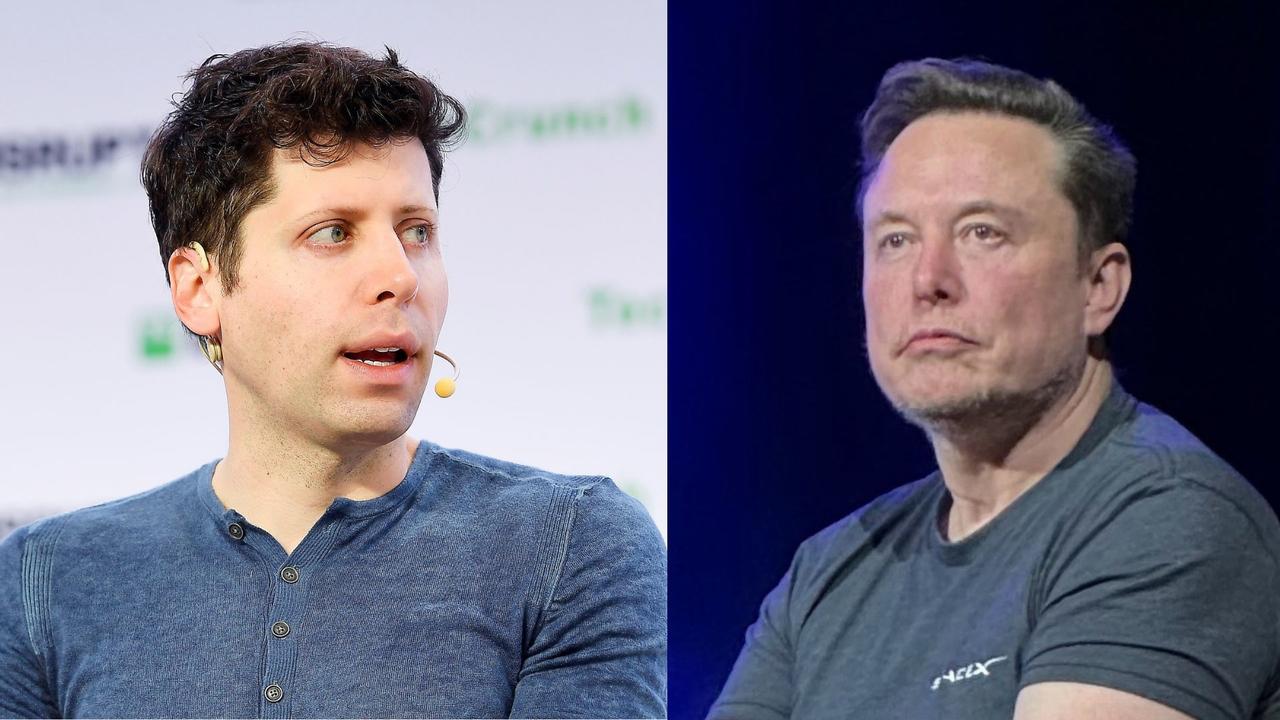Tony Fadell Criticizes LLMs and Silicon Valley Culture at TechCrunch Disrupt 2024
2 Sources
2 Sources
[1]
Tony Fadell takes a shot at Sam Altman in TechCrunch Disrupt interview
iPod creator, Nest Labs founder, and investor Tony Fadell took a shot at OpenAI CEO Sam Altman on Tuesday during a spirited interview at TechCrunch Disrupt 2024 in San Francisco. Speaking about his understanding of the longer history of AI development before the LLM craze and the serious issues with LLM hallucinations, he said, "I've been doing AI for 15 years, people, I'm not just spouting sh** -- I'm not Sam Altman, okay?" The comment drew a surprised murmur of "oohs" from the shocked crowd amid just a small handful of applause. Fadell had been on a roll during his interview, touching on a number of topics ranging from what kind of "a**holes" can produce great products to what's wrong with today's LLMs. While admitting that LLMs are "great for certain things," he explained that there were still serious concerns to be addressed. "LLMs are trying to be this 'general' thing because we're trying to make science fiction happen," he said. "[LLMs are] a know-it-all...I hate know-it-alls." Instead, Fadell suggested that he would prefer to use AI agents that are trained on specific things and are more transparent about their errors and hallucinations. That way, people would be able to know everything about the AI before "hiring" them for the specific job at hand. "I'm hiring them to...educate me, I'm hiring them to be a co-pilot with me, or I'm hiring them to replace me," he explained. "I want to know what this thing is," adding that governments should get involved to force such transparency. Otherwise, he noted, companies using AI would be putting their reputations on the line for "some bullshit technology," he said. "Right now we're all adopting this thing and we don't know what problems it causes," Fadell pointed out. He noted also that a recent report said that doctors using ChatGPT to create patient reports had hallucinations in 90% of them. "Those could kill people," he continued. "We are using this stuff and we don't even know how it works." (Fadell seemed to be referring to the recent report where researchers had found that University of Michigan researchers studying AI transcriptions found an excessive number of hallucinations, which could be dangerous in medical contexts.) The comment about Altman followed as he shared with the crowd that he has been working with AI technologies for years. Nest, for instance, used AI in its thermostat back in 2011. "We couldn't talk about AI, we couldn't talk about machine learning," Fadell noted, "because people would get scared as sh** -- 'I don't want AI in my house' -- now everybody wants AI everywhere."
[2]
iPod Co-Creator Tony Fadell Dismisses ChatGPT Type LLMs Saying 'We're Trying To Make Science Fiction Happen' -- Bashes Silicon Valley's Entitlement
Former Apple Inc. executive and co-creator of the iPod, Tony Fadell has expressed his disapproval of Silicon Valley's entitlement culture and the use of large language models. What Happened: On Tuesday, Fadell, who is also the founder and former CEO of Nest Labs, took the stage at TechCrunch Disrupt 2024. During the conversation, he underscored the importance of "mission-driven a**holes" in the development of top-tier technology products. Drawing a distinction between egocentric and mission-driven individuals, Fadell commended the latter for their attention to detail and critique of work, not people. See Also: Team Biden's Ban On China Tech Investments Could Impact Tesla's AI Plans: Report The tech mogul also took a swipe at Silicon Valley's entitlement, humorously commenting on the culture of Googlers and their work habits. He voiced his disapproval of startups hiring Googlers due to their perceived entitlement. "We said, we will never hire people from the East Coast," referring to his time at General Magic in the 90s, adding, "because they had to have their driver, or they had to have their company car, and they had to have their corporate lunch and their special executive toilet." "And now I wake up today, and Silicon Valley has turned into that s***, and I'm like, get me the f*** out of here, yeah? Entitlement everywhere," he stated. Fadell further criticized LLMs, describing them as "know-it-alls." He argued that while LLMs can be beneficial in certain areas like entertainment, their adoption should not be universal due to their propensity for errors. "If you look at artificial-specific models, they work really well," he said, adding, "They don't hallucinate, but LLMs are trying to be this general thing because we're trying to make science fiction happen." Subscribe to the Benzinga Tech Trends newsletter to get all the latest tech developments delivered to your inbox. Why It Matters: Fadell's critique of LLMs comes at a time when AI technology is increasingly being integrated into various sectors, including healthcare. Last year, Google's medical AI chatbot, Med-PaLM 2, began testing at the Mayo Clinic. The chatbot, a variant of the PaLM 2 language model, was specifically tailored for medical institutions. Despite concerns about AI hallucinations, a 2023 study also suggested that chatbots like OpenAI's ChatGPT could be more empathetic than actual doctors. However, not all industry leaders share the same optimism about AI in healthcare. Earlier this year in September, billionaire investor Chamath Palihapitiya expressed a more cautious view, acknowledging the potential of AI but also highlighting its limitations. "It's not all roses, but some areas if you imagine them, I'll give you a couple if you want, are just bananas, I think," he stated at the time. Photo by @kmeron On Flickr Check out more of Benzinga's Consumer Tech coverage by following this link. Read Next: Elon Musk's $2.9K Offer Rejected By SEC, Agency Requests Judge To Sanction Billionaire Over Missed Depositions Disclaimer: This content was partially produced with the help of AI tools and was reviewed and published by Benzinga editors. Market News and Data brought to you by Benzinga APIs
Share
Share
Copy Link
Tony Fadell, co-creator of iPod and founder of Nest Labs, voices concerns about Large Language Models and Silicon Valley's entitlement culture during TechCrunch Disrupt 2024, emphasizing the need for more specialized AI models.

Tony Fadell Takes Aim at LLMs and Silicon Valley Culture
At TechCrunch Disrupt 2024 in San Francisco, Tony Fadell, the renowned co-creator of the iPod and founder of Nest Labs, delivered a candid critique of Large Language Models (LLMs) and the current state of Silicon Valley culture. Fadell, drawing from his extensive experience in AI development, expressed significant concerns about the widespread adoption of LLMs and their potential risks
1
.Criticism of LLMs and Their Limitations
Fadell didn't mince words when discussing the current state of LLMs. He described them as "know-it-alls" and expressed his dislike for such systems. While acknowledging that LLMs can be "great for certain things," he emphasized the serious concerns that need to be addressed
1
."LLMs are trying to be this 'general' thing because we're trying to make science fiction happen," Fadell stated, highlighting the ambitious yet potentially problematic nature of current AI development
2
.Advocacy for Specialized AI Models
In contrast to general-purpose LLMs, Fadell advocated for more specialized AI agents. He suggested that AI models trained on specific tasks and designed to be transparent about their errors and limitations would be more beneficial. This approach, according to Fadell, would allow users to have a clearer understanding of an AI's capabilities before "hiring" it for specific tasks
1
.Concerns About AI Hallucinations and Transparency
Fadell raised alarm about the potential dangers of AI hallucinations, particularly in critical fields like healthcare. He cited a recent report indicating that doctors using ChatGPT to create patient reports experienced hallucinations in 90% of cases, emphasizing the life-threatening risks involved
1
.To address these issues, Fadell called for greater transparency in AI systems and suggested that governments should intervene to enforce such measures. He warned that companies adopting AI technologies without fully understanding their implications are putting their reputations at risk
1
.Related Stories
Critique of Silicon Valley Culture
Beyond his concerns about AI, Fadell also took aim at the evolving culture in Silicon Valley. He criticized what he perceived as a growing sense of entitlement among tech workers, particularly referencing the work culture at companies like Google
2
."We said, we will never hire people from the East Coast," Fadell recounted, referring to his time at General Magic in the 90s. He then drew a parallel to the present day, stating, "And now I wake up today, and Silicon Valley has turned into that s***, and I'm like, get me the f*** out of here, yeah? Entitlement everywhere"
2
.A Call for Mission-Driven Development
Despite his harsh critique, Fadell emphasized the importance of what he called "mission-driven a**holes" in developing top-tier technology products. He distinguished between egocentric individuals and those who are mission-driven, praising the latter for their attention to detail and ability to critique work rather than people
2
.References
Summarized by
Navi
Related Stories
Sam Altman fires back at Elon Musk over ChatGPT safety, citing Tesla Autopilot deaths
21 Jan 2026•Entertainment and Society

Elon Musk and Sam Altman's AI Feud Escalates: Legal Threats, Public Spats, and App Store Controversy
13 Aug 2025•Technology

OpenAI's Sam Altman Claims AGI Breakthrough, Reflects on Company Turmoil
06 Jan 2025•Technology

Recent Highlights
1
ByteDance's Seedance 2.0 AI video generator triggers copyright infringement battle with Hollywood
Policy and Regulation

2
Demis Hassabis predicts AGI in 5-8 years, sees new golden era transforming medicine and science
Technology

3
Nvidia and Meta forge massive chip deal as computing power demands reshape AI infrastructure
Technology





